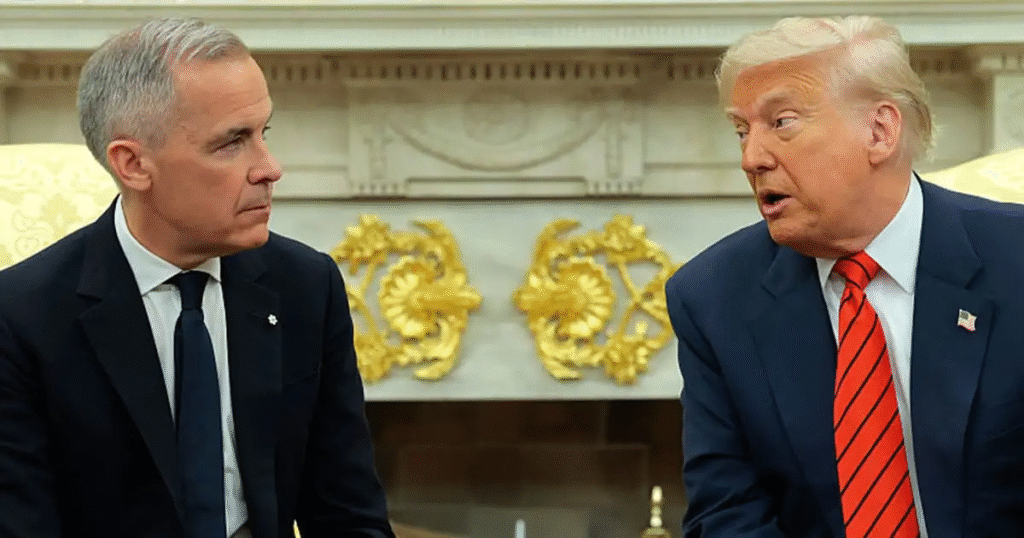
A recent meeting between former U.S. President Donald Trump and Canadian Prime Minister Mark Carney took an unexpected turn when Trump revisited one of his more provocative ideas: incorporating Canada as America’s 51st state. What began as a routine diplomatic conversation on May 6 at the White House quickly veered into a tense dialogue about national identity and sovereignty.
Trump, known for his flair for the dramatic, kicked things off by floating the notion that a union between the U.S. and Canada would be broadly welcomed. He likened it to a “beautiful partnership,” suggesting the two nations would thrive together. Carney, however, didn’t entertain the idea for a moment. While he acknowledged Trump’s significant political impact by calling him a “transformative figure,” Carney swiftly pushed back. “Canada is not on the market,” he said firmly. “And it never will be.”
Carney’s stance wasn’t just a political retort—it was a powerful reaffirmation of Canadian independence. He underlined that sovereignty and self-rule are core to the country’s identity, values that can’t be bargained away. Referring subtly to Canada’s long-established autonomy, he reminded Trump that the nation has always governed itself and intends to keep it that way.

Still, Trump remained undeterred. With a smirk, he referenced Justin Bieber’s lyric, “Never say never,” hinting at his belief in making unlikely deals happen. But Carney’s composure and resolve left no room for negotiation.

Analysts noted the tension beneath the surface. Body language specialist Beth Dawson observed that while Carney maintained an outward calm, small gestures—like a measured handshake—hinted at underlying discomfort. The interaction laid bare the sharp differences in their worldviews: Trump’s sweeping, often showy ambitions contrasted starkly with Carney’s steadfast protection of Canadian independence.
In the end, the exchange underscored Trump’s enduring knack for grabbing headlines with bold—and often divisive—proposals. Yet for Canadians, the outcome was clear: their sovereignty isn’t up for debate, no matter who’s in charge south of the border.

Dedicated and experienced pet-related content writer with a passion for animals and a proven track record of creating engaging and informative content. Skilled in researching, writing, and editing articles that educate and inspire pet owners. Strong knowledge of animal behavior, health, and care, combined with a commitment to delivering high-quality content that resonates with audiences. Seeking to leverage writing skills and passion for pets to contribute to a dynamic and mission-driven team.
